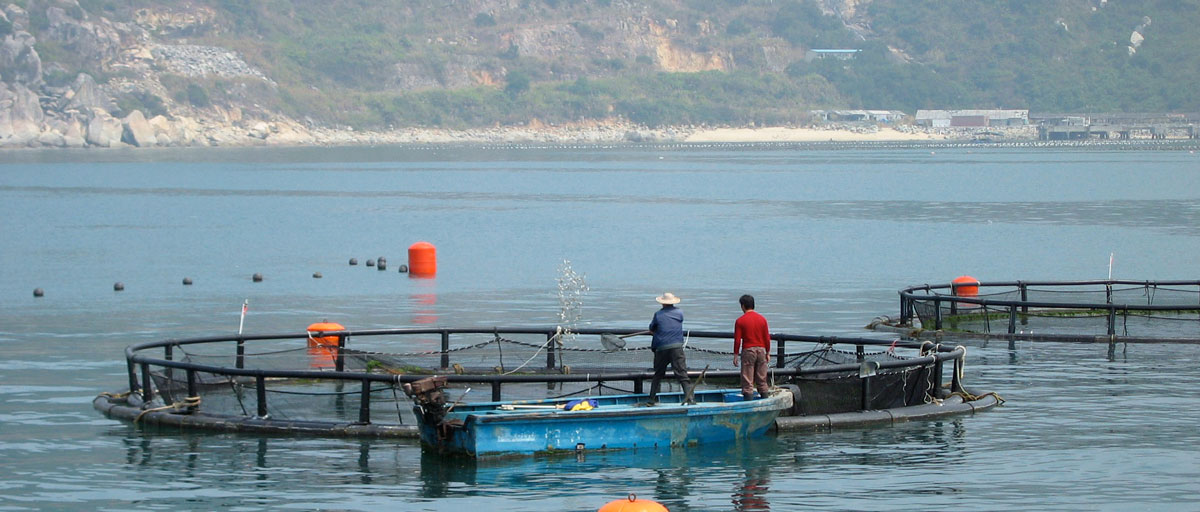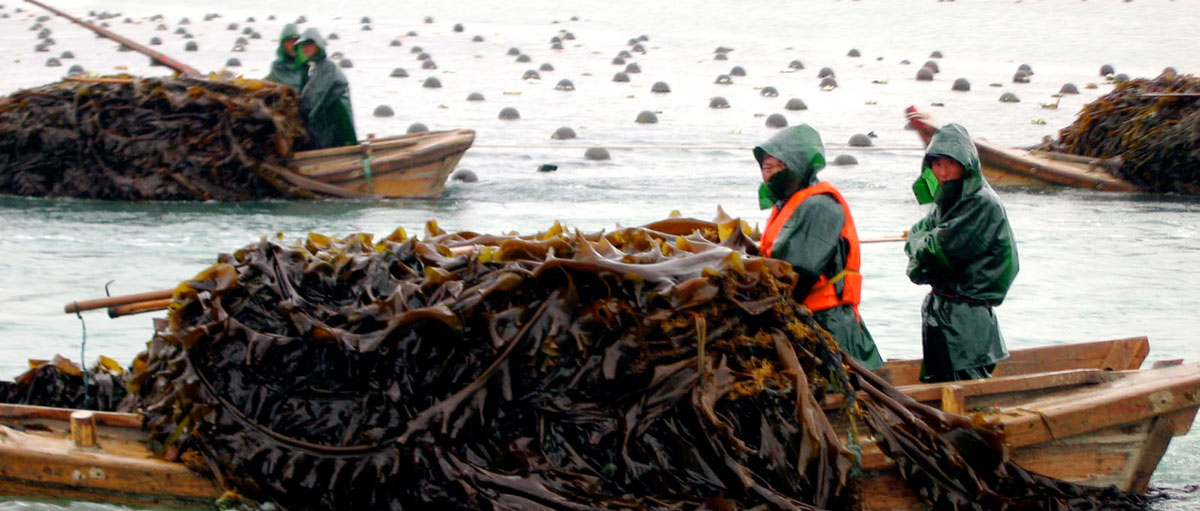
A recently published paper examines the role of aquaculture for the resilience of the global food system in the face of population growth and diminishing natural resources. Photo: M. Troell/Azote
Aquaculture and food security
Farming aquatic animals for global food system resilience
Does aquaculture add resilience to the world’s food portfolio?
- Aquaculture can contribute to resilience of the global food system
- This requires increased diversity of farmed species; promotion of ethically sourced co-products from the crop, livestock, and fisheries sectors for feed
- Management practices that minimize wastes, environmental impacts and social inequalities is also key
The global food systems are fragile and put under constant strain due to the relentless rise in human demand for animal protein.
Resource scarcity and degradation of ecosystems combined with the greater frequency of shocks and unexpected events such as droughts, pest outbreaks and price fluctuations, create cumulative pressures.
What is the role of aquaculture, farming of fish, shellfish and other aquatic organisms for human consumption, in addressing this dilemma? Will aquaculture, which is the fastest growing sector of the food system, enhance or detract from the resilience of the global food system?
These questions are posed in an article published in the Proceedings of the U.S. National Academy of Sciences (PNAS), authored by a group of globally renowned interdisciplinary scholars led by Max Troell of the Beijer Institute for Ecological Economics and the Stockholm Resilience Centre.
The global food system: fragile and vulnerable
More food is needed for a growing global population and there is an increasing appetite for animal protein – particularly in countries with growing economies such as China and India. This poses a challenge in terms of using natural resources, fish feed, water and energy, as efficiently as possible while minimising environmental impacts. At the same time, resource scarcity and the impacts of climate change put pressure on food production systems.
These pressures of increasing production while facing diminishing resources also occur in the context of rapidly fluctuating food prices, undermining food security. This was demonstrated during 2008 when spikes in food prices led to food riots in many places around the world.
"Our current system based around chicken, pork and beef is terrifyingly monolithic, inflexible and exposed to potentially disastrous shocks"
Marten Scheffer, co-author
Enter Aquaculture
Aquaculture offers the potential to reduce the fragility of the global food system by acting as a buffer by increasing the variety of proteins that are available for human consumption.
"The rapid rise of aquaculture during the last two decades provokes both optimism and apprehension among scientists and policy analysts concerned with global food security," says Marc Metian, co-author of the paper.
The growth is indeed remarkable. In the past couple of decades the cultivation of fish and shellfish in freshwater and marine systems grew at an annual rate that substantially exceeded that of poultry, pork, dairy, beef, and grains. As a general trend, the price of farmed seafood has also been more stable than prices in other sectors of the food system.
Aquaculture's contribution to global food supplies will depend on its use of food-grade crops and its ability to use agriculture residues, and also on its future use of wild fish for feeds – something that is also entangled with issues of social equity and ethics. A key example of this is the ethical trade-off between fish and crops being used directly for food versus using them to feed farmed aquatic animals and livestock.
An innovative approach
The paper uses an innovative framework called Portfolio theory, which enabled the authors to analyse how growth in aquaculture and diversifying food production may enhance the ability of the global food system to meet future demands under changing conditions.
"This first set of global estimates of the use of crops for feed in aquaculture indicates that the crops used are often the same as those used for terrestrial animal farming, but also shows that the volumes used for aquaculture are still low," says Max Troell.
A call to action – moving beyond academia
Wrapping up the article, the authors conclude that the present diversity of aquaculture does contribute important elements of stability to the world's food portfolio, but in the long run this will depend on how the sector develops in terms of species composition, feed inputs, and system design and operation.
Finally, they make a strong call to action:
"If the aquaculture industry seeks to dominate the global market for animal protein, it should take a leading role in promoting a strategy of resilience. By doing so, it can contribute to improving the stability of the world's portfolio of proteins in support of global food security. This requires the development of a diversity of aquaculture species; the promotion of ethically sourced co-products from the crop, livestock, and fisheries sectors for feeds; infrastructure design that uses renewable energy and, the implementation of management practices that minimize wastes, environmental impacts and social inequalities."
CITATION
Troell M., R. L. Naylor, M. Metian, M. Beveridge, P. H. Tyedmers, C. Folke, K. J. Arrow, S. Barrett, A.-S. Crépin, P. R. Ehrlich, Å. Gren, N. Kautsky, S. A. Levin, K. Nyborg, H. Österblom, S. Polasky, M. Scheffer, B. H. Walker, T. Xepapadeas, A. de Zeeuw. 2014. Does aquaculture add resilience to the global food system? PNAS Early edition. DOI: 10.1073/pnas.1404067111
Max Troell is a system ecologist mainly working with environmental problems associated with aquaculture.







